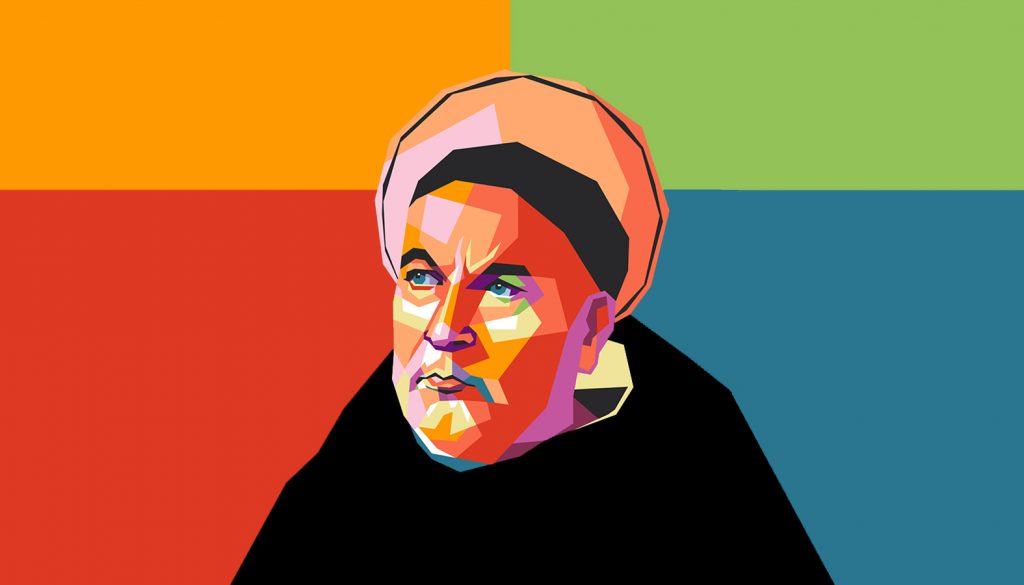Recently, I had the privilege of sitting down with Lex Fridman for a wide-ranging two-hour conversation. Lex is a professor of robotics and artificial intelligence at MIT and an extremely popular podcaster. In this latter capacity, he has spoken to significant players in a number of fields—Joe Rogan, Mark Zuckerberg, Elon Musk, and Sam Harris, to name just a few. Though his main interests are in the arenas of science and technology, he is quite open to discussing matters of a more philosophical and even religious nature. Fridman has a very engaging style—not argumentative and confrontational, but rather curious, inquisitive. In the course of our two hours together, we talked about God, Jesus, life after death, morality, modernity, Nietzsche, Jordan Peterson, the Bible, faith, and the meaning of life.
Judging from the thousands of comments, the general reaction from his largely tech-oriented audience was quite positive. Many observed that they were pleased to hear a serious conversation about matters that went beyond what the sciences can describe. However, I don’t want to focus on the encouraging reactions, but rather on the critical ones—and there were plenty of them too—for they tell us a good deal about what young secularists are thinking in regard to religion.
Without a doubt, the most common negative reaction was that I was speaking “gobbledygook,” or tossing an unimpressive “word salad,” or “using lots of words to say nothing at all.” Much of this critique was focused on my opening exchange with the interviewer. Lex asked me very simply, “Who is God?” I responded, not sentimentally or piously, but rather in the technical language of philosophy. I said that God is ipsum esse subsistens (the sheer act of being itself), in contradistinction to anything other than God, in which essence and existence are distinguished. I went on to clarify the meaning of these terms in the manner of Thomas Aquinas, attempting to be as precise and technically correct as possible. To be sure, there are many ways to talk about God, but I chose, with Lex’s audience in mind, to use a more intellectual approach.
What most struck me in regard to my critics is that none of them actually engaged the argument I was making or endeavored to formulate a counter-position; they simply pronounced that what I was saying was gibberish. Anyone even vaguely acquainted with the Western philosophical tradition would know that I was, in point of fact, operating out of a system of thought developed by some of the most brilliant thinkers in the tradition: Plato, Aristotle, Augustine, Boethius, Plotinus, Bonaventure, and yes, Thomas Aquinas. It was, to be sure, not scientific speech, but it was perfectly rational, philosophically disciplined speech. That so many in the comment boxes simply did not know what I was talking about was a sobering reminder of how narrow and cramped our educational system has become. In my responses to some of these critics, I said, “Would you accuse a theoretical physicist, who was using the technical language of his discipline, of ‘word salad,’ if you did not immediately understand him? Wouldn’t you perhaps summon the humility to admit that you had a lot to learn?” I am reminded of something Cardinal Francis George used to say—namely, that before we can even broach the question of the relation between science and religion, we have to reintroduce people to philosophy, the rational discipline that effectively mediates between them. Sadly, many in the Lex Fridman audience didn’t know what to do with the sort of philosophical language in which much of our doctrine of God is expressed.
The second most common criticism was that my very Catholicism effectively disqualified me. “How can you listen to a representative of the most corrupt institution in history?” complained one commentator. “Religion—especially the Catholic religion—is responsible for the deaths of millions,” said another. Here is my favorite: “Of all the differing variations of Christianity, Catholicism is by far the most cynical, repugnant, crass variant. It’s done more harm to the human species than any other religion, it’s kept us back from progressing.” Um . . . just off the top of my head: how anyone, after the murderous secularist and atheist regimes of the twentieth century, which piled up tens of millions of corpses, can, with a straight face, argue that Roman Catholicism is the source of the greatest corruption in history simply beggars belief. This sort of canard can only be construed as the result of the intentionally distorted recounting of history far too typical in our colleges and universities. Secondly, this is such a cheap trick of our “woke” era: identify your opponent as a member of a supposedly oppressive group, cancel him, and thereby conveniently avoid any obligation to make an argument or respond to one. Thirdly, even if we grant (as we should) that lots of Catholics have behaved badly in the course of a two-thousand-year history, what precisely does this prove? That Catholicism is essentially corrupt? That its doctrines, sacraments, liturgies, saints, and culture are fatally compromised? Hardly. That human beings are a bad lot? Sure—and in point of fact, the Catholic teaching regarding the ongoing effects of original sin even in those who are baptized would lead us to expect as much. In a word, this sort of criticism is little more than a red herring, an intentional distraction from the issue at hand.
Over the years, I have made a slew of suggestions as to how we religious people can improve our evangelical strategies, but I wonder whether I might offer a challenge to those too ready to dismiss religious claims out of hand. First, don’t cavalierly characterize philosophy as “word salad,” and perhaps even try to study it. And second, drop the woke posturing and have the courage to enter into real argument with those who don’t share your worldview.

